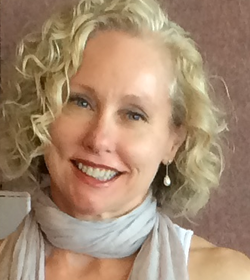 Laurie Potter released the hounds in the spring of 2016 when she launched Minnesota’s first all-dog news channel. Inspired by Potter’s relationship with a certain husky mix named Poe, mndoglovertv.com demonstrates the bonds of love and service between Minnesota dogs and their humans. The all-video website features such organizations as Can Do Canines, which trains dogs to bring greater mobility to humans with disabilities, Secondhand Hounds, a dog/animal rescue, and Barks and Rec, a meet-up group for dog enthusiasts.
Laurie Potter released the hounds in the spring of 2016 when she launched Minnesota’s first all-dog news channel. Inspired by Potter’s relationship with a certain husky mix named Poe, mndoglovertv.com demonstrates the bonds of love and service between Minnesota dogs and their humans. The all-video website features such organizations as Can Do Canines, which trains dogs to bring greater mobility to humans with disabilities, Secondhand Hounds, a dog/animal rescue, and Barks and Rec, a meet-up group for dog enthusiasts.
As the independent business owner of Howling Husky Productions, a St. Paul, MN-based media and video consulting company, Potter intends this most-recent venture to help her realize another dream: creating videos and films on non-traditional topics. I got to know Laurie a bit while filming one of these videos and learn more about Potter’s practical advice to realizing entrepreneurial dreams.
Here’s our conversation on manifesting our dreams
Karen: What is your core dream as a filmmaker?
Laurie: My dream is really just to take an idea, a story a thought or a concept and be able to express it in a way that moves someone emotionally, to allow the viewer to feel an experience as they watch so they can identify and really understand what’s being presented. When you add music, graphics and film to the presentation of an idea or a story you have so many more components that enhance what you’re talking about.
Karen: How did you approach manifesting your dreams—your filming work, your music–in the outer world?
Laurie: I approached it pragmatically. I have that artistic part of me. I have the mystical creative part as well. But I look at art from the business end. I’ve always done that.
Karen: What do you view as the secret to manifesting dreams?
Laurie: It’s really just creating new habits. How you think is a habit. It’s just a matter of you deciding if you’re going to move forward or not.
Really making those changes and doing the work is the most rewarding thing. Both ground you and give you a sense of confidence and security in yourself. Then there isn’t much that comes your way that can derail you. You’ve implemented change, you’ve failed, you’ve tried again – all those things build who you are.
I don’t see the process as mystical. I see it as faith. I think it’s a matter of giving up control. You open up your mind more. You have more of an open mind and see opportunities and answers more clearly. You’re not trying to force something.
There are times when I just ask for guidance. And I often get it.
Karen: Describe the process of coming terms to with the dream.
Laurie: Early in my life I probably looked at my dream as more of a hobby, so I followed the same path as my peers–college, the corporate thing. I never felt happy or fulfilled. The only time I have passion and feel something is when I’m creating something. I reached a point where if I didn’t pursue that passion and dream, I’d forever live or be stuck in a mundane existence.
Not having grown up with acceptance for the life I wanted made manifesting the dream more difficult. Fighting for the dream meant getting past more conventional ways of living and working.
Karen: How long did it take for you to battle inner demons and make your dreams fully conscious and realized in your own mind?
Laurie: For my whole life it just seemed this was always at the front and foremost. It was what I was and am passionate about. No matter what job I had it wasn’t fulfilling. I always went back to the dream of what I wanted to do. After the last layoff [in 2013] it wasn’t an option any more. That was it. I knew that’s what I wanted to do, and I’ll get it done come hell or high water. I don’t want to work for another company. I’m at a point now where I’ve got to do it.
Karen: What is the cost associated with saying yes to the dream? This could be any kind of cost–e.g., monetary, social, bearing high risk.

Laurie: Obviously there is a monetary risk. For video and music, you have lots of equipment you have to purchase. There’s a social risk because you’re putting yourself and your work out there for people to pass judgment on. If you don’t let things roll off easily, that can be disheartening and damaging. For me, I’d say do it anyway. People are always going to have opinions. You can weed out the ones that are valid and help you grow and disregard those that aren’t.
Karen: Did you have any creative U-turns, as Julia Cameron calls them?
Laurie: I’ve had plenty of fear. I’ve revamped my business plan multiple times because when you first start you have an idea of what you want to do, sometimes it doesn’t work out that way once you get into it. There’s fear and discomfort that goes along with that because you feel ungrounded. You have to just roll with it until it falls into place.
Pursuing your dream or business idea isn’t for the faint of heart but it is well worth it. You have to stay with it. Your mind can be full of party poopers, the voices discouraging you, giving you all this info you don’t want to hear but you just have to override them.
Karen: What key tip would you give to others seeking to realize their dream?
Laurie: Action is huge. Everyone talks about it but not everyone does it. I think it was Steve Jobs who said ideas without action aren’t ideas; they are regrets. I always think about that. Everybody has ideas; what are they unless they have action?
The actions don’t have to be big. You just have to keep moving forward. You have to chip away at manifesting your dream in little bits. Little tiny bites will eventually help you finish something up.
I do something every day toward my goal. In hindsight I look back and I can see how all those things add up. I can have the littlest win and I’m ready to move forward.
 Minneapolis-based freelance writer Karen Cavalli writes fiction and non-fiction and her work appears online (including in Lioness Magazine) and in print magazines and books. Her work has won awards. Recent publications include an essay in the Minneapolis StarTribune.
Minneapolis-based freelance writer Karen Cavalli writes fiction and non-fiction and her work appears online (including in Lioness Magazine) and in print magazines and books. Her work has won awards. Recent publications include an essay in the Minneapolis StarTribune.





Add Comment